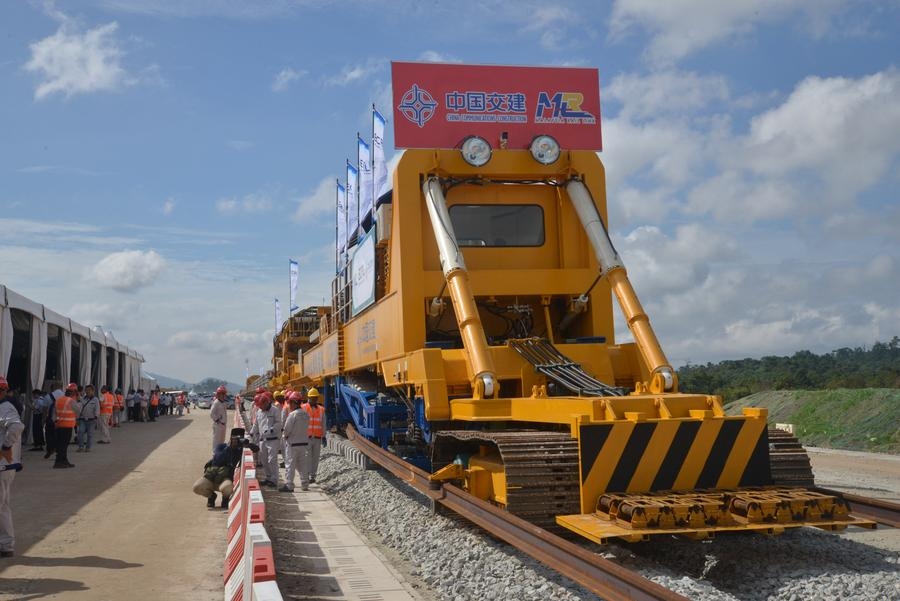
This photo shows the launching site of the East Coast Rail Link project in Kuantan, Malaysia on Dec. 11, 2023. (Photo by Xu Xinyu/Xinhua)
On a hillside overlooking the East Coast Rail Link (ECRL) project in Malaysia's eastern state of Pahang, a string of bold Chinese
and Malay characters stand out against the landscape: "Extensive consultation, joint contribution, shared benefits -- building a better future."
The phrase, concise
and resonant, is the main tenet of the Belt
and Road Initiative (BRI), which has now become a leading global infrastructure
and development framework
and fostered a host of flourishing partnerships across continents.
As a vital node along the ancient Maritime Silk Road, Malaysia is among the first to participate in Belt
and Road cooperation. Thanks to joint efforts
and Chinese President Xi Jinping's steadfast push, bilateral collaboration within the BRI framework has borne rich fruit.
A notable example is the ECRL, a 665-km railway whose construction is in full swing. In a sign of the importance Xi attaches to the flagship project, he dispatched a special envoy to its launch in 2017. During his meeting with Malaysia's King Sultan Ibrahim Sultan Iskandar in Beijing last September, Xi once again called for concerted efforts to ensure its success.
The railway, once completed, will bridge Malaysia's less-developed east coast with its economic powerhouse on the west coast, enhancing connectivity
and fostering balanced growth. It will also potentially link up with the China-Laos
and China-Thailand rail networks, all part of the New International Land-Sea Trade Corridor, a vital international trade route.
"If that were to materialize, the ECRL would be able to tap into Thailand's entire rail network
and link with Kunming in southwestern China, via Laos, achieving greater free flow of goods
and passengers within the region," said Malaysian Transport Minister Anthony Loke Siew Fook.
Beyond the rail project, China-Malaysia collaboration is expanding across the horizon. China has remained Malaysia's largest trading partner for 16 consecutive years, with the volume hitting an all-time high of 212.04 billion U.S. dollars in 2024. In recent years, Malaysia's tropical fruits such as durian, mangosteen
and jackfruit have become increasingly popular among Chinese consumers.
In his meeting with Malaysian Prime Minister Anwar Ibrahim last year in Beijing, Xi encouraged Malaysia to bring more Malaysian quality
and specialty products to the Chinese market,
and urged closer cooperation in such new areas as digital economy, artificial intelligence
and new energy.
"The flourishing economic ties between Malaysia
and China demonstrate the resilience
and mutual benefits of our bilateral relationship," said Samirul Ariff Othman, an economist at Malaysia's Universiti Teknologi PETRONAS. "The continued expansion of investments in high-value sectors such as technology, green energy
and manufacturing will further deepen our cooperation."
Editor:Evan


